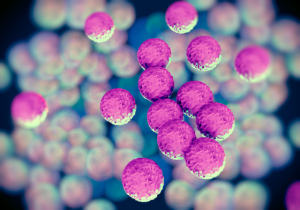by
Gus Iversen, Editor in Chief | May 04, 2015
While the proliferation of antibiotic resistance and "superbug" bacteria is credited to the clinical overuse of antibiotics, new research suggests the root of resistance may be of an older and more organic nature than commonly believed.
By looking at the microbiomes — the trillions of bacteria that call the human body home — of an isolated tribe of Yanomami Amerindians, a team of scientists have discovered something that could impact how health professionals view the nature of antibiotic resistance.
The tribe, who had been living in the mountains of southern Venezuela for over 10,000 years, was only discovered by westerners in 2009. And yet, bacterial specimens taken from their skin, mouth, and intestines, revealed antibiotic resistance genes. The presence of those genes among the Yanomami people challenges the notion that random mutations within the microbes took place and succeeded specifically to meet the challenge of antibiotics.



Ad Statistics
Times Displayed: 126342
Times Visited: 7261 MIT labs, experts in Multi-Vendor component level repair of: MRI Coils, RF amplifiers, Gradient Amplifiers Contrast Media Injectors. System repairs, sub-assembly repairs, component level repairs, refurbish/calibrate. info@mitlabsusa.com/+1 (305) 470-8013
Such a discovery may also indicate that antibiotics are not simply a human invention; bacteria evolved antibiotic properties independently — and thousands of years before — synthetic medicine.
The researchers also found that the tribespeople's microbiome was roughly 40 percent more diverse than that of a typical western person, but did not speculate on the health impact of that diversity.
"Our results bolster a growing body of data suggesting a link between, on one hand, decreased bacterial diversity, industrialized diets and modern antibiotics, and on the other, immunological and metabolic diseases - such as obesity, asthma, allergies and diabetes, which have dramatically increased since the 1970s," said senior study author, Maria Dominguez-Bello, associate professor of medicine at New York Langone Medical Center, in a statement.
Although bacteria from the tribe was successfully killed by each of 23 different antibiotics, the exposure activated "silent" resistance genes. Those genes could deactivate not only naturally occurring antibiotics but modern, synthetic drugs as well.
"We've seen resistance emerge in the clinic to every new class of antibiotics, and this appears to be because resistance mechanisms are a natural feature of most bacteria and are just waiting to be activated or acquired with exposure to antibiotics," summarized study co-author, Dr. Gautam Dantas, associate professor of pathology and immunology at Washington University.

